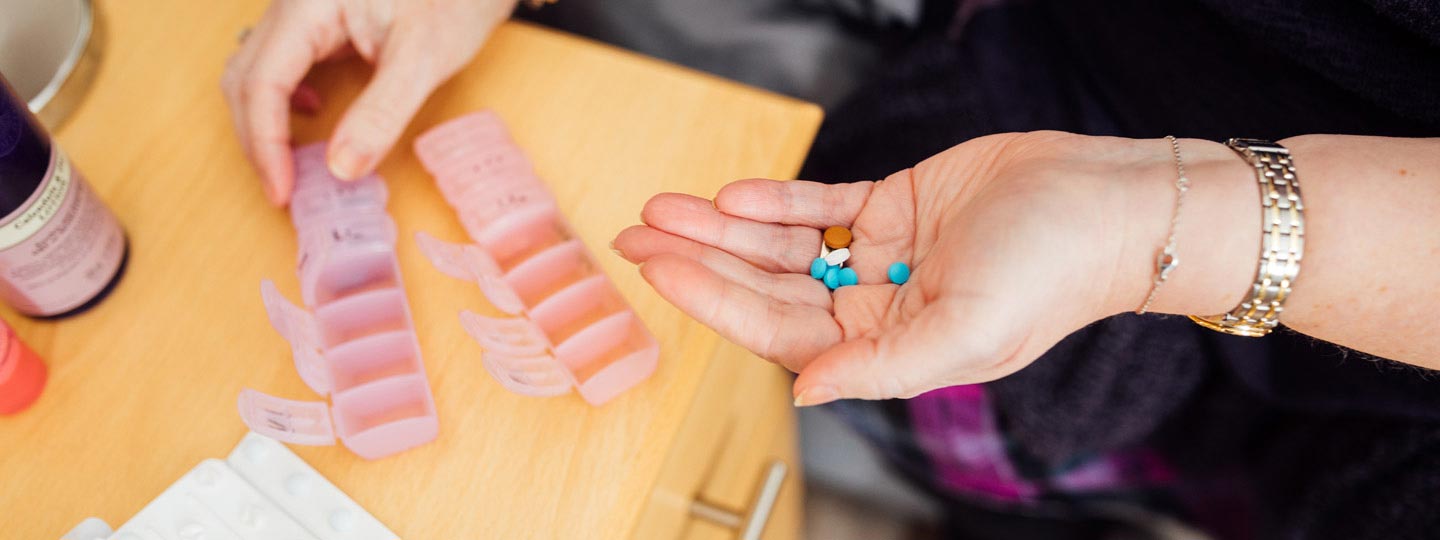Common questions about taking methotrexate
03 March 2022
Methotrexate is one of the most commonly prescribed drugs for arthritis and related conditions. Find out more about the drug and read answers to commonly asked questions relating to methotrexate. For more information about methotrexate.
What is methotrexate used for?
Methotrexate is used to treat many different types of arthritis, including rheumatoid arthritis and psoriatic arthritis. It can be given to children as well, including those who have juvenile idiopathic arthritis (JIA) and uveitis.
Methotrexate is also used by doctors to treat other conditions, such as cancer, but the dose used for cancer is usually much higher than for arthritis.
What does it do?
Methotrexate is known as a disease-modifying anti-rheumatic drug or DMARD, which means that instead of just treating the symptoms, it treats the underlying condition.
Methotrexate changes how the immune system behaves and reduces inflammation, meaning that if it works for you, your symptoms will improve.
It can take a while to start working, up to 12 weeks, it’s important you keep taking it even if it doesn’t seem to be working at first.
How will I take it?
Methotrexate can be taken as a tablet, liquid or injection. Injections can be given by a healthcare professional and you can learn how to give them yourself.
"I’m on methotrexate and sulfasalazine. It has worked but it took a while...I would say to others - do give medications a chance and keep an open mind. Methotrexate has a bad reputation but for me it works. I was on the pill form, and I took it on a Saturday night, with my turn to have a lie in on Sunday. But some weeks it was still like a bad hangover and I felt scatty and irritable. I have just switched to injections to see if they make any difference. But I would still take the pills if there wasn’t this alternative. The pain relief outweighs the downsides."
Read Clare's story.
What are the side effects of methotrexate?
As with any medication, methotrexate can cause side effects. These can include feeling sick and vomiting, headaches, mouth ulcers, diarrhoea, shortness of breath and rashes.
Because the drug affects your immune system, it might make you more likely to pick up infections.
Your doctor will probably give you folic acid (vitamin B9) to help counteract some of the side effects. Read more about folic acid.
How can I protect myself from infection?
To reduce your risk of getting an infection, try to avoid contact with people you know have infections. It’s a good idea to wash your hands regularly and carry a small bottle of antibacterial hand gel.
Make sure food is stored and prepared properly, and keep your house clean, especially the kitchen, bathrooms and toilets.
Sometimes chickenpox and shingles infections can be serious in people who are taking methotrexate. Speak to your rheumatology team if you meet anyone who has these infections or if you get them yourself.
It’s safe to have the pneumonia and yearly flu vaccines while taking methotrexate. Speak to your GP for advice on other vaccines.
Can I drink alcohol?
Research has found that it’s safe to drink alcohol within the government’s guideline amount. The guideline amount is no more than 14 units of alcohol a week for adults. You can find out more about units of alcohol on the drinkaware website.
Alcohol and methotrexate can both affect your liver. It’s recommended that you speak to your rheumatologist about this, as they might recommend stricter limits to help protect your liver.
What if I want to start a family?
It’s a good idea for anyone with arthritis who’s considering starting a family to speak to their rheumatology team first. They can give advice on medication and managing the condition.
Women shouldn’t take methotrexate if they’re pregnant or want to get pregnant, as the drug can affect how an unborn baby develops. You should use contraception (or ask your partner to) for up to three months after stopping methotrexate.
It was thought that men needed to stop the drug for three months before trying for a baby. Research now suggests that it’s safe to keep taking it, though men starting a family should still speak to their doctor about this first. Read more about arthritis and pregnancy.
Will taking methotrexate affect my skin in the sun?
Methotrexate can increase your skin’s sensitivity to sunlight. Make sure you wear sunscreen if you’re outdoors and try to stick to shaded areas in the middle of the day if you can. Check out the information on sun safety on the NHS website.
We’re here whenever you need us.
- If you would like to talk to someone, you can call our free helpline on 0800 5200 520
- Talk to our arthritis virtual assistant, 24/7
- Join our online community
- Stay in touch and follow us on Twitter, Facebook and Instagram.